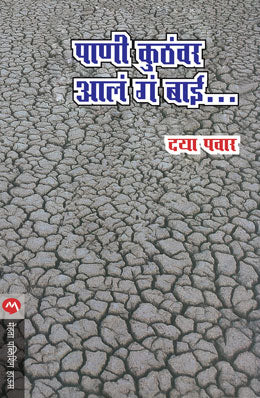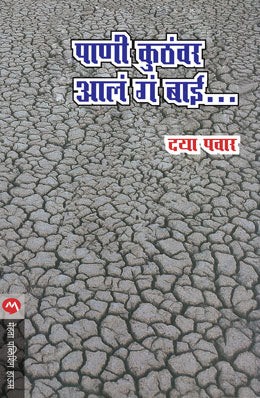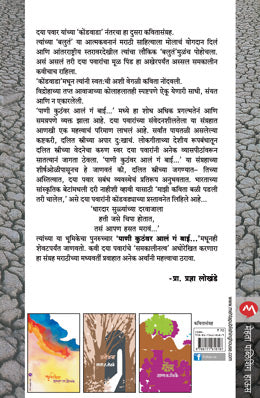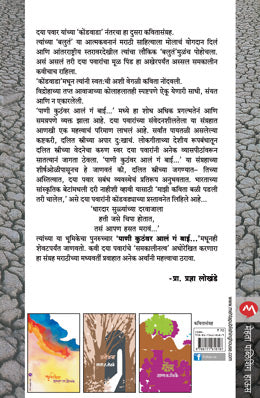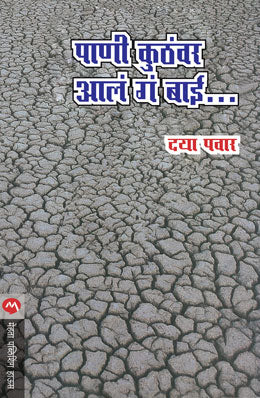PANI KUTHAVAR AALA GA BAI...
PANI KUTHAVAR AALA GA BAI... is backordered and will ship as soon as it is back in stock.
Couldn't load pickup availability
Genuine Products Guarantee
Genuine Products Guarantee
We guarantee 100% genuine products, and if proven otherwise, we will compensate you with 10 times the product's cost.
Delivery and Shipping
Delivery and Shipping
Products are generally ready for dispatch within 1 day and typically reach you in 3 to 5 days.
Book Details
-
ISBN: 9788171618189
-
Edition: 2nd
-
Publishing Year: November 1998
-
Pages: 56
-
Language: Marathi
-
Category: Poems
-
Binding: Paperback
-
Publisher: Mehta Publishing House
About The Book
Where Did Water Come From? is the second powerful poetry collection by Daya Pawar, following his acclaimed debut Kondwada. Known for his groundbreaking autobiography Baluta, which made a lasting contribution to Marathi literature on both national and international levels, Daya Pawar continues his literary journey here with deep introspection and bold social commentary.
This collection reveals a more layered and mature voice — a poet who reflects rebellion not with noise, but with nuance. His verses are simple, accessible, yet emotionally piercing, capturing the pain and reality of the marginalized.
Pawar’s poetry sensitively portrays the struggles of Dalit women, the exploitation of the working class, and the silent suffering of oppressed lives. Each poem stands as a testimony to lived experiences — where grief, endurance, and resistance intersect.
The title poem itself, Where Did Water Come From?, becomes a symbolic expression of existential questions and the systemic injustice that governs the life of a Dalit woman. Daya Pawar’s deep empathy and commitment to truth resonate through every line, making this collection a significant contribution to contemporary Dalit literature.
This is not just poetry — it is a voice of conscience, and a mirror to society.

